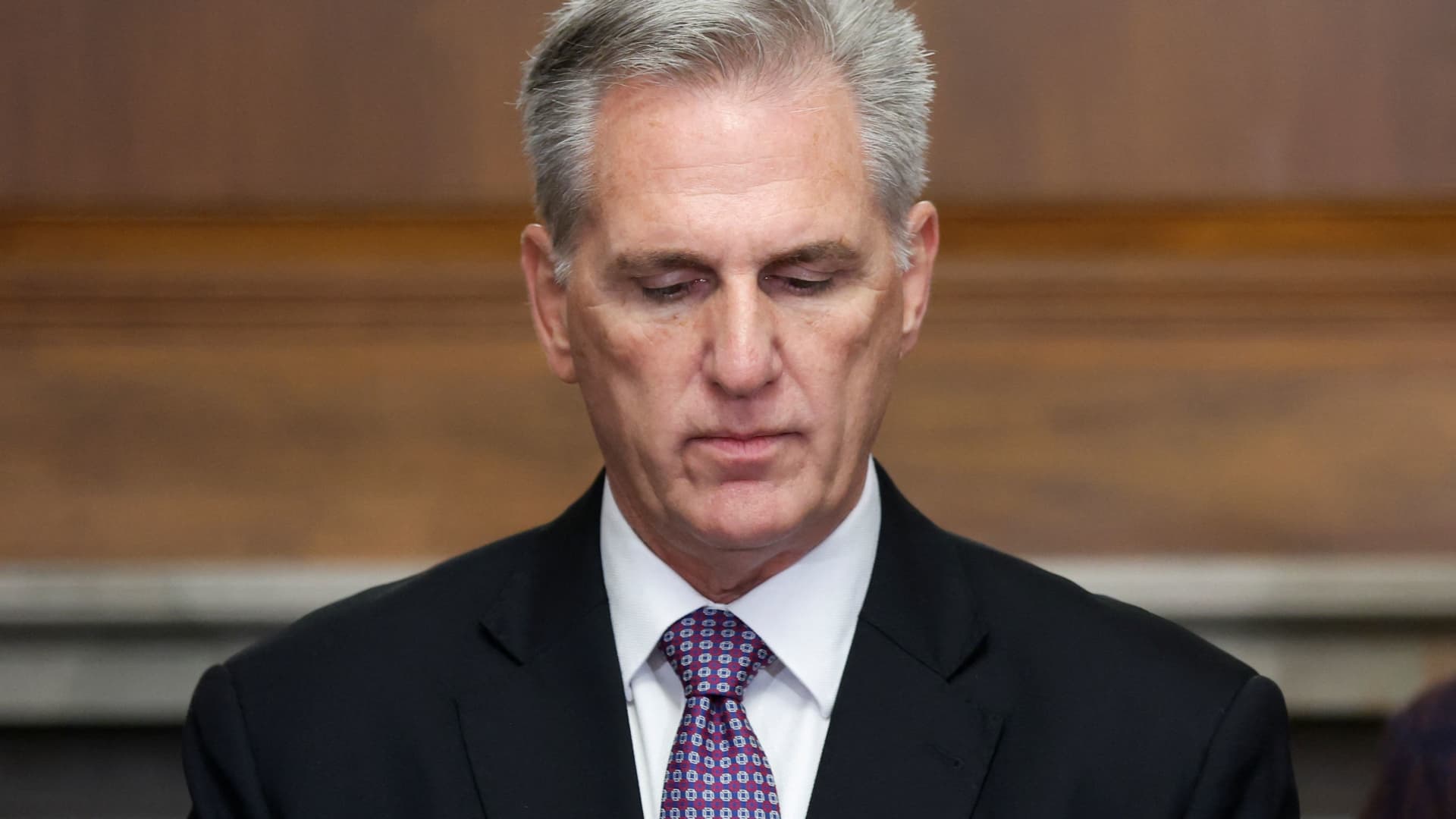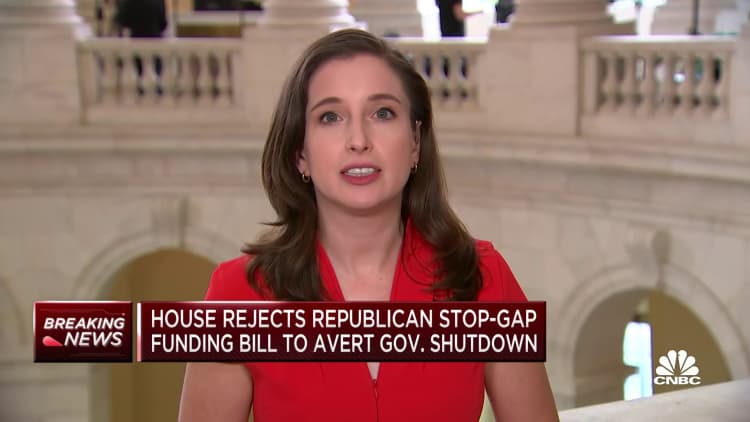House Republicans cancel planned recess as government shutdown appears more likely


WASHINGTON — House Republican leaders Friday canceled a planned two-week recess as a government shutdown appeared more likely after they failed to pass a short-term spending bill with fewer than two days left to avoid the shutdown.
House Speaker Kevin McCarthy, R-Calif, informed the GOP caucus of the canceled break at a closed-door meeting after more than 20 Republicans embarrassed him by voting with Democrats to defeat the bill.
Republicans who joined Democrats voting against the measure included several of McCarthy’s most outspoken antagonists, Rep. Matt Gaetz, of Florida; Reps. Andy Biggs and Eli Crane, of Arizona, and other hardline conservatives.
Even if the bill had passed, it was doomed to failure in the Senate, where Democrats hold majority control.
The government is scheduled to shut down at 12:01 a.m. ET Sunday if a funding bill is not approved by both chambers of Congress and signed into law by President Joe Biden.
The Senate already advanced a bipartisan bill by a wide margin that would fund the government through Nov. 17.
Senate Majority Leader Chuck Schumer, D-N.Y., on Friday blasted McCarthy for trying to placate conservatives in his caucus, rather than working with Democrats and moderates on a bill that could pass the Senate.
“Coddling the hard right is as futile as trying to nail jello to a wall, and the harder the speaker tries, the bigger mess he makes,” Schumer said. “And that mess is going to hurt the American people the most.”
“I hope the speaker snaps out of the vice grip he’s put himself in and stops succumbing to the 30 or so extremists who are running the show in the House,” Schumer said. “Mr. Speaker, time has almost run out.”
House Republican leaders advised members that there would be votes Saturday.
It was unclear what they would be voting on.
But on Friday evening, McCarthy suggested that his conference might be willing to back a bipartisan bill to fund the government, as long as it did not contain additional emergency funding for Ukraine — a key White House demand with broad support in the Senate.
“I think if we had a clean [funding bill] without Ukraine on it, we could probably be able to move that through,” McCarthy told reporters as he left the closed door conference meeting.
Several hours later, McCarthy walked back his apparent willingness to move the Senate bill.
“After meeting with House Republicans this evening, it’s clear the misguided Senate bill has no path forward and is dead on arrival,” he said around 9:30 p.m. ET. “The House will continue to work around the clock to keep government open and prioritize the needs of the American people.”
Nonetheless, the notice to members to be ready for Saturday votes had raised hopes among both moderate Republicans and Democrats that McCarthy might agree to hold a vote on a version of the Senate bill to fund the government. Such a bill which would almost certainly pass with broad support from moderate Democrats and moderate Republicans.
As the clock neared midnight Friday, with just 24 hours remaining before a shutdown, it was difficult to envision what McCarthy could do that would both fund the government and satisfy the conservative critics in his restive caucus,
The White House condemned House Republicans for engaging in fiscal brinksmanship.
“We’re doing everything we can to plead, beg, shame House Republicans to do the right thing,” Shalanda Young, director of the White House Office of Management and Budget, told reporters.
She scoffed at McCarthy’s suggestion that he would refuse his own paycheck during a shutdown.
“That is theater,” Young said.
“The guy who picks up the trash in my office won’t get a paycheck. That’s real.”
The White House said Biden would stay “in dialogue with Congress” over the coming days, but insisted the core elements of any spending bill had been agreed to as part of the debt ceiling deal earlier this year.
Across Washington on Friday, government agencies prepared their employees and the public for the effects of a shutdown.
The Smithsonian Institution said it would use existing funds from last year to keep its museums and the National Zoo open for at least the next week.









